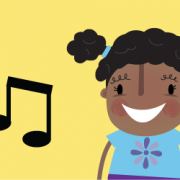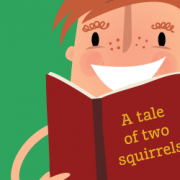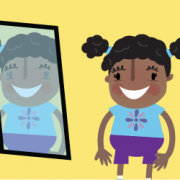Any time we become overly focused on ourselves (either thinking too highly of ourselves or negatively about ourselves), we lose our focus on God. Both viewpoints – pride and insecurity – take God out of the picture. This activity will give you a practical opportunity to help your children view themselves from a healthy, Biblical perspective.
You will need a mirror and a window that allows you to see outdoors, but also shows yourself reflected in the window pane. (You may find that this activity works best at dusk or after dark.)
Begin by having your children look at their reflection in a mirror. Next, ask them to look out the window. While they are comparing the two experiences, ask the following questions:
Questions for discussion
- Who do you see in the mirror?
- What do you like about what you see there?
- What do you like best about the way God made you?
- When you look through the window, whose reflection do you see?
- What else can you see through the window?
- Who made the ________? (Name some things your children can see out the window.)
- If all you did all day was sit around and gaze in the mirror, what would you be missing out on?
To further help your kids understand the futility of living a self-centered life, tell your children a modified version of Snow White and the Seven Dwarfs. You can use the sample story below, or simply tell a story about a popular, controlling child.
Pearl learns to look beyond her mirror
There once was a pretty young girl named Pearl. Pearl always wore cute matching clothing or fancy dresses. Her long, shiny, brown hair was often curled, or pulled back with a fancy headband.
Pearl expected everyone to think she was special. She would ask her friends questions like, “Do you like my dress?” Or “Did you notice what my mom did with my hair today?” When she played dress-up or make believe games, Pearl would sometimes look in the mirror and say, “Mirror, mirror on the wall, who’s the fairest of us all?” Then Pearl would quickly answer, “Pearl is the fairest in the land! Come, charming prince, and hold my hand!”
And as you guessed, people did notice and admire Pearl.
Pearl thought the best way to get other kids to like her was to continually point out how wonderful she was. Somehow she convinced nearly all the other girls in her neighbourhood that she should be invited to everyone’s house to play, and to all the birthday parties. “Of course, a party wouldn’t be a party without Pearl,” she would say.
Sometimes Pearl would hear of a party she had not been invited to. She would tell all the girls who had been invited to tell the host of the party that they wouldn’t attend unless Pearl was invited too.
Week after week, Pearl received more invitations to parties and playdates than any other girl in town. No one knew why everyone continued to do exactly what Pearl wanted. Perhaps they admired her boldness, and underneath they wanted to be as powerful as Pearl was. Or maybe the girls were afraid that if they left Pearl out, she would get mad and make the other kids angry with them too.
Pearl was quite pleased with the situation and enjoyed the attention from all of her “friends.” All was going quite well in her life until a new girl moved into their neighbourhood.
Sarah, the new girl, didn’t have the nicest clothes and she didn’t have the best toys at her house, but Sarah smiled all the time! When Pearl and her mother would drive or walk by, Sarah always waved. Pearl began to notice that almost every day there were girls over at Sarah’s house, playing in the yard or out on the sidewalk on their scooters. Instead of seeing Sarah as a potential friend, Pearl began to see her as a threat to her own popularity.
Pearl would say things to the other girls like, “What fun can it be at Sarah’s house? She doesn’t have any really nice dolls to play with.” Or “Who would want to be friends with Sarah? She seems, well, kind of boring. No new clothes ever and stuff.”
One day Sarah asked Pearl to come over to her house for a playdate. Pearl almost said no, but underneath she really wondered what it was like inside Sarah’s house and why the other girls seemed to like her so much. So the next day, Pearl went over to play at Sarah’s house, as they had planned.
Although Sarah did not dress or act like a beauty queen, after playing with her for the afternoon, Pearl could see why the other girls enjoyed spending time at Sarah’s house. Pearl didn’t even have to try to make Sarah notice her: Sarah already treated Pearl as though she was special.
Sarah showed Pearl around the house and asked her what she liked to do. After they were tired of playing house, they sat in the kitchen and had a snack. Sarah’s mom asked Pearl some questions about school and then they all played a guessing game where they had to take turns guessing each other’s favourite foods, colours and activities. Sarah laughed a lot – not at anyone, just in a bubbly, friendly way. The time went by very quickly and Pearl was surprised when her mom arrived to pick her up.
On the drive home Pearl told her mother, “I want to be Sarah Lansdown.”
“Why would you want to be her?” Pearl’s mom exclaimed. “She has mousy hair, no style, and I thought you said her toys were boring and out-dated.”
“But Mom,” said Pearl, “she was really nice.”
“Nice won’t get you anywhere,” Pearl’s mom replied.
Pearl tried to explain what made Sarah so different. “It was like she really liked me, Mom. I felt happy at her house. I’d like to live there. I’d like to have Sarah’s life.”
Now, if you like, you can invite your children to finish telling the story.
Questions for discussion
- Why do you think Pearl acted the way she did?
- Did Pearl spend life looking in the mirror, or looking out the window?
- How about Sarah?
- Which girl would you prefer to have as a friend?
- Who taught Pearl to worry about what others thought of her?
- What did Pearl learn from Sarah?
- What do you think made Sarah different from other girls that Pearl knew?
- How did Sarah make other girls feel special?
- Which girl honoured God?
Key concepts
When we look in a mirror, all we see is our own reflection. We cannot see through the mirror to see other people, or the world around us. God wants us to enjoy being the way He made us, but He doesn’t want us to be so focused on ourselves that we don’t care about other people.
If we look out a window, we can still see our own reflection in the glass; however, we also see other people and the world around us.
God made people, animals, grass, trees, hills and mountains for us to enjoy. When we consider God as the maker of the universe and realize that we are just a small part of all creation, we are less tempted to be self-centered. Seeing life this way means we will be more interested in honouring God by sharing His love with others, than we will be in catering to ourselves.
If someone thinks only about themselves, they miss out on the joy of caring for others and enjoying healthy relationships. Friendships where everything revolves around one person’s needs are sometimes called “one-sided,” like a mirror. Healthy relationships are “two-sided,” meaning the people involved care about pleasing each other, not just themselves.
|
Mirror gazers (a self-centred perspective)
|
|
“Life is all about me, getting what I want and having fun.”
“The more I have, the better I look, the smarter I am, the more athletic I am, then the more popular and the more valuable I am.”
“The goal of life is to be happy.”
|
|
Window gazers (a Biblical perspective)
|
|
“Life is all about sharing Jesus’ love through caring about and serving others.”
“I am valuable because God made me.”
“The goal of life is to honour God.”
|
Relevant Scripture
Philippians 2:4 “Each of you should look not only to your own interests, but also to the interests of others.”
Hebrews 3:3 “Jesus has been found worthy of greater honor than Moses, just as the builder of a house has greater honor than the house itself. For every house is built by someone, but God is the builder of everything.”
Acts 17:24-25 “The God who made the world and everything in it is the Lord of heaven and earth and does not live in temples built by human hands. And He is not served by human hands, as if He needed anything, because He Himself gives all men life and breath and everything else.”









